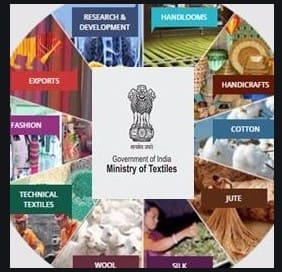A study for understanding the Goods and service tax (GST) on textiles and apparel has been planned by the Ministry of Textiles. This has adversely impacted domestic production and thus requires restructuring. A government official quoted, “We have received complaints that the GST rate on synthetic fibers is leading to an inverted duty structure, making imports cheaper than domestic manufacture. To address the concerns, the Ministry has decided to appoint consultants who will assess GST rates on the value chain of textile.”
The rate on inputs is higher than that on outputs. At present, synthetic fiber is taxed at 18%, yarn at 12% and final output including garments at 5%. “The inverted duty structure is creating unfair competition between imports and domestic players and also hurts exporters. The government needs to do something soon to keep the industry from sinking as there is already a liquidity crunch in the market and the blockage of capital due to the inverted duty structure is leading to huge losses,” pointed out Sanjay Jain, former Chairman, Confederation of Indian Textiles Industries (CITI).
He also added, “The government needs to come up with measures to address such concerns and keep the industry afloat considering there is already a liquidity crunch in the market”. Certain consultants are appointed who will be asked to map various GST rates on products which will help cover the entire value chain. As per the Request for Proposal (RFP) circulated by the ministry of textiles, a study has to be made which gathers industry representations and demands made till date. The consultant will also have to find out if the taxes have affected the prices and also the affordability of the buyer. The consultant will be required to recommend changes to the present tax and duty structure.
Interactions with representatives of different value chains/industry associations/selected stakeholders and industry representatives are supposed to be recorded in order to seek feedback/ views on the subject to understand challenges in greater details.
The Ministry has also invited bids for selection of a consulting firm for undertaking a study on Making Cotton Competitive. The agency would be required to map the entire cotton value chain, including farming, production, productivity, and processing. They will also identify the problems faced by various players across the value chain and review the impact of existing assistance given to cotton farmers, processing and production entrepreneurs, as per the RFP.
NEWS REPORTED BY:
VRIDHI BHAGNARI.
CONTACT DETAILS: vridhi.bhagnari1707@gmail.com

